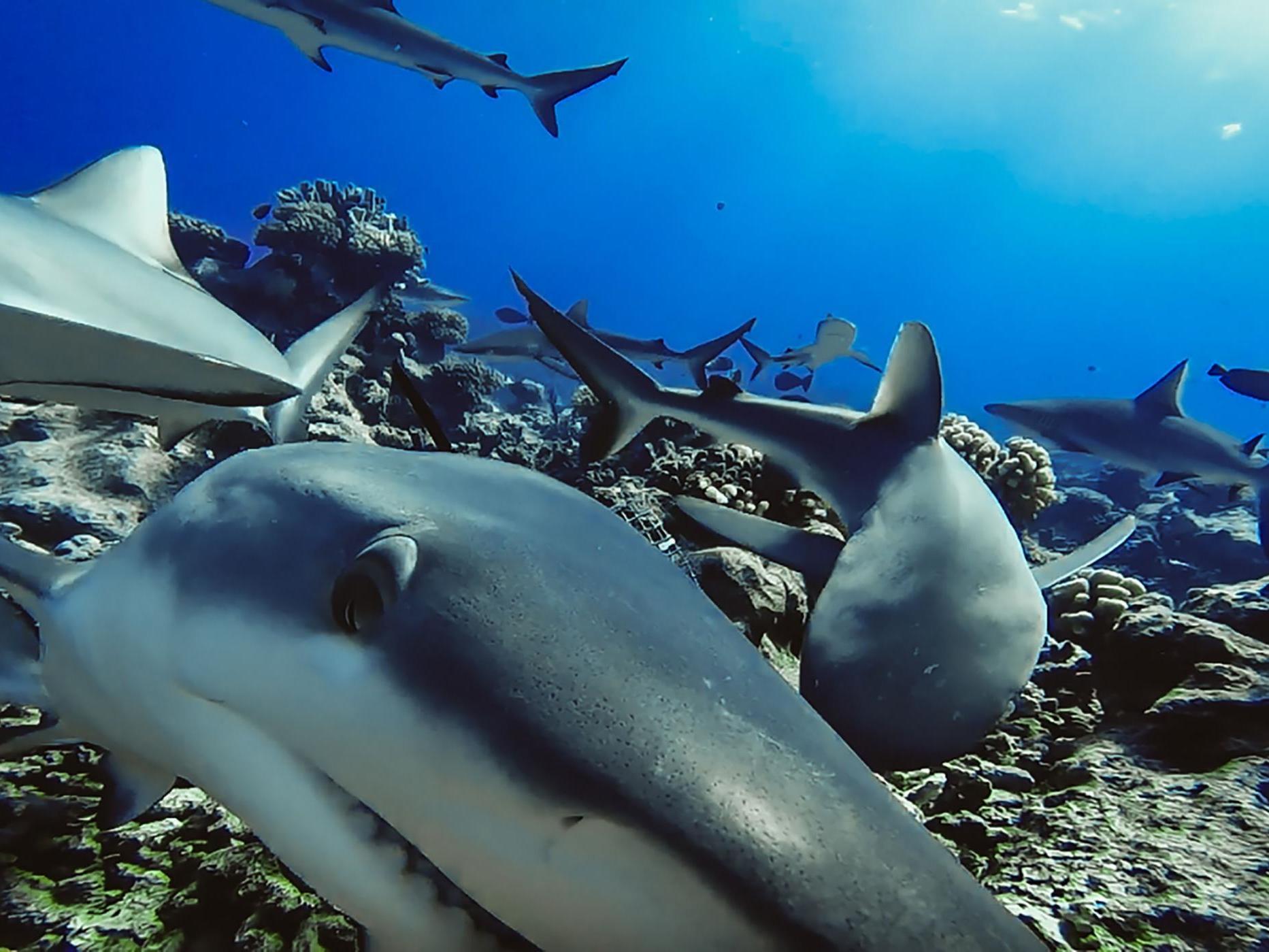Grey reef sharks form long-term friendships, study reveals
Ocean predators form social groups sometimes lasting for years, scientists discover

Grey reef sharks work together and form social groups that can last for years, according to a study.
Scientists who monitored a shark population off the remote Palmyra Atoll, to the south of Hawaii in the Pacific Ocean, noticed the predators formed tangled webs of social bonds.
The shark would spend their mornings together as large groups, disperse throughout the day, before reconvening with their friends later on.
The findings offers a surprising new insight into the behaviour of the predators, typically seen as solitary creatures.
“For some time now, we have known that sharks are capable of having distinct social preferences for other group mates,” said David Jacoby, a research fellow at the Zoological Society of London, which was involved in the study. “We had no idea, though, that these social bonds could last for multiple years or that in the absence of reproduction or parental care that such communities might function as areas to exchange information.”
As part of the study, 41 sharks out of the approximately 8,000 that live in the waters off the island were implanted with acoustic transmitters that had a four-year battery life.
Researchers at Florida International University, UC Santa Barbara, University of Hawaii and University of Exeter used a network of 65 receivers to track the movements of the creatures, which can grow up to 6ft in length.
Each transmitter gave off a unique frequency which could be detected by the receivers up to 300 metres away.
In the four years after the sharks were tagged, the research team spotted 972 "significant social clustering events".
The scientists said that groups of reef sharks primarily formed during the day, before the animals left the reef at night.
The study's lead author Yannis Papastamatiou, a marine scientist at Florida International University, suggested the creation of social groups could help the sharks share information such as the location of prey.
"Why form social groups? We suggest benefits of inadvertently sharing information, such as the location of prey," he said.
"Our new study shows grey reef sharks forming spatially structured social groups that can be pretty stable over multiple years."
The research was published on Wednesday in the journal Proceedings of the Royal Society B.
As well as the Pacific Ocean, grey reef sharks, known by the scientific name Carcharhinus amblyrhynchos, can also be found in the Indian Ocean.
Subscribe to Independent Premium to bookmark this article
Want to bookmark your favourite articles and stories to read or reference later? Start your Independent Premium subscription today.
Join our commenting forum
Join thought-provoking conversations, follow other Independent readers and see their replies
Comments